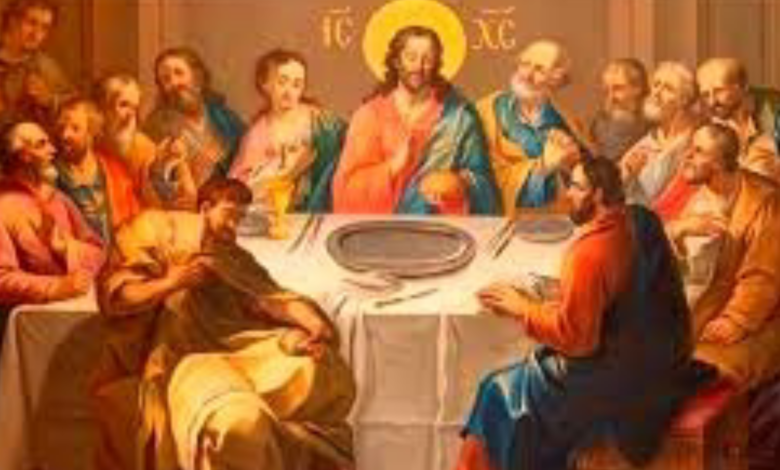
Maundy Thursday: Understanding the Significance and Traditions Maundy Thursday, also known as Holy Thursday, is a significant day in the Christian calendar that commemorates the Last Supper of Jesus Christ with his disciples before his crucifixion. This article delves into the historical background, observances, cultural practices, and the contemporary relevance of Maundy Thursday. Maundy Thursday: Understanding the Significance and Traditions
Historical Significance
Origin and Etymology
The term “Maundy” is derived from the Latin word which means “commandment.” It refers to Jesus’ commandment to his disciples during the Last Supper to love one another as he has loved them.
Biblical References
Maundy Thursday finds its roots in the New Testament accounts of the Gospels, particularly in the books of Matthew, Mark, and Luke. These scriptures narrate the events of Jesus washing the feet of his disciples and instituting the sacrament of Holy Communion. Maundy Thursday: Understanding the Significance and Traditions
Observances and Traditions
Foot Washing Ceremony
One of the central rituals of Maundy Thursday is the symbolic washing of feet, which commemorates Jesus’ act of humility and service towards his disciples. This tradition is practiced in many Christian communities worldwide as a symbol of selflessness and servant leadership.
Last Supper Commemoration
During Maundy Thursday services, Christians reenact the Last Supper by sharing bread and wine, symbolizing the body and blood of Jesus Christ. This ritual, known as the Eucharist or Holy Communion, is a pivotal aspect of Christian worship and serves as a remembrance of Jesus’ sacrifice. Maundy Thursday: Understanding the Significance and Traditions
Holy Week Activities
Maundy Thursday marks the beginning of the solemn period of Holy Week, leading up to Easter Sunday. It is a time for prayer, reflection, and participation in religious services that recount the events of Jesus’ Passion, death, and resurrection.
Cultural Practices Around the World
Maundy Thursday is observed with various cultural customs and traditions worldwide. In some countries, churches hold processions, while others organize communal meals or charity events to commemorate the occasion. Each culture brings its unique interpretation and expression to this holy day. Maundy Thursday: Understanding the Significance and Traditions
Differences in Observance among Christian Denominations
Different Christian denominations may observe Maundy Thursday in distinct ways, with variations in liturgical practices and theological emphasis. While some churches emphasize the sacramental aspect of the Last Supper, others focus on the act of foot washing as a symbol of Christian humility.
Reflection and Contemplation
Maundy Thursday provides an opportunity for believers to reflect on the significance of Jesus’ sacrifice and the teachings of humility and love. It prompts individuals to contemplate their own lives and relationships, inspiring acts of kindness, forgiveness, and reconciliation. Maundy Thursday: Understanding the Significance and Traditions
Symbolism and Meaning
The Sacrament of Holy Communion
The Eucharist celebrated on Maundy Thursday symbolizes the unity of believers with Christ and with one another. It signifies spiritual nourishment, forgiveness of sins, and the promise of eternal life through Christ’s sacrifice on the cross.
Humility and Service
The act of foot washing exemplifies Jesus’ call to serve others with humility and compassion. It challenges Christians to embody the principles of servant leadership and selfless love in their daily lives, following the example set by Jesus. Maundy Thursday: Understanding the Significance and Traditions
Importance in Christian Faith
Maundy Thursday holds significant theological importance in Christianity as it marks the institution of two fundamental sacraments: Baptism and Holy Communion. It underscores the foundational beliefs of the Christian faith and serves as a reminder of God’s redeeming love for humanity.
Relevance in Modern Society
Community Service and Charity Events
Many churches and Christian organizations engage in community service projects and charitable activities on Maundy Thursday as a way of embodying Jesus’ commandment to love one another. These initiatives promote social justice, compassion, and solidarity with the marginalized. Maundy Thursday: Understanding the Significance and Traditions
Reflection on Personal Sacrifice
In today’s fast-paced society, Maundy Thursday invites individuals to pause and reflect on the meaning of sacrifice and service in their lives. It encourages self-examination and prompts people to consider how they can contribute to the well-being of others in meaningful ways.
Conclusion
Maundy Thursday stands as a poignant reminder of Jesus’ selfless love and sacrifice, inviting believers to emulate his example of humility, service, and compassion. As Christians commemorate this holy day, they are called to reflect on the profound meaning of Jesus’ teachings and their relevance in contemporary society.
Maundy Thursday
FAQs (Maundy Thursday: Understanding the Significance and Traditions)
1. What is the significance of the name “Maundy Thursday”?
The term “Maundy” originates from the Latin word “man datum,” which means “commandment.” It refers to Jesus’ command to his disciples to love one another as he has loved them.
2. Why is foot washing a significant ritual on Maundy Thursday?
Foot washing symbolizes Jesus’ act of humility and service towards his disciples, illustrating the importance of selfless love and servant leadership in Christian faith.
3. How do different Christian denominations observe Maundy Thursday?
Various Christian denominations may have distinct practices and traditions associated with Maundy Thursday, including foot washing ceremonies, Holy Communion, and liturgical services.
4. What is the connection between Maundy Thursday and the Last Supper?
Maundy Thursday commemorates the Last Supper, where Jesus shared a final meal with his disciples before his crucifixion. It is during this meal that Jesus instituted the sacrament of Holy Communion.
5. How can individuals observe Maundy Thursday in a meaningful way?
Individuals can observe Maundy Thursday by participating in church services, engaging in acts of service and charity, reflecting on Jesus’ teachings, and spending time in prayer and contemplation.




One Comment